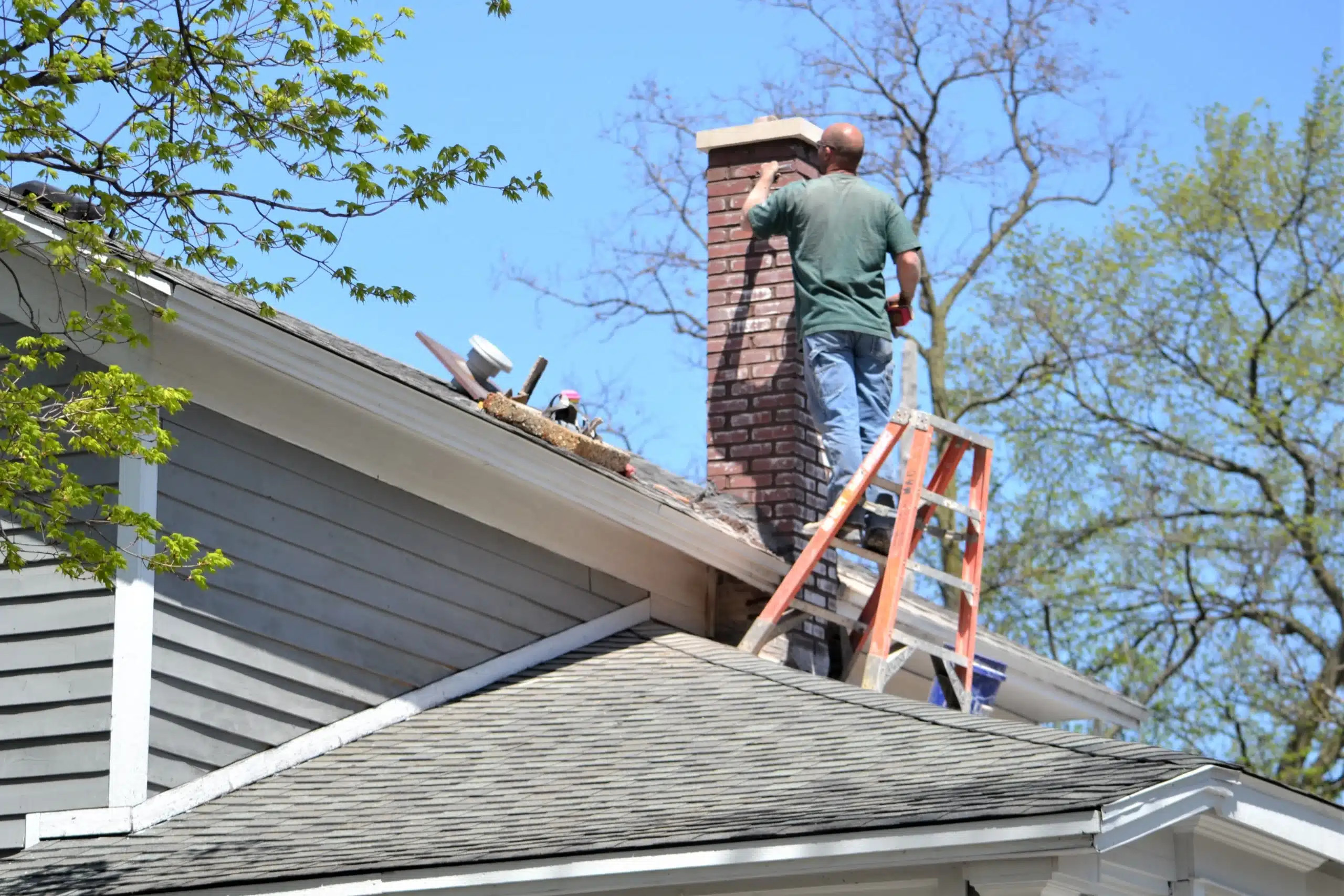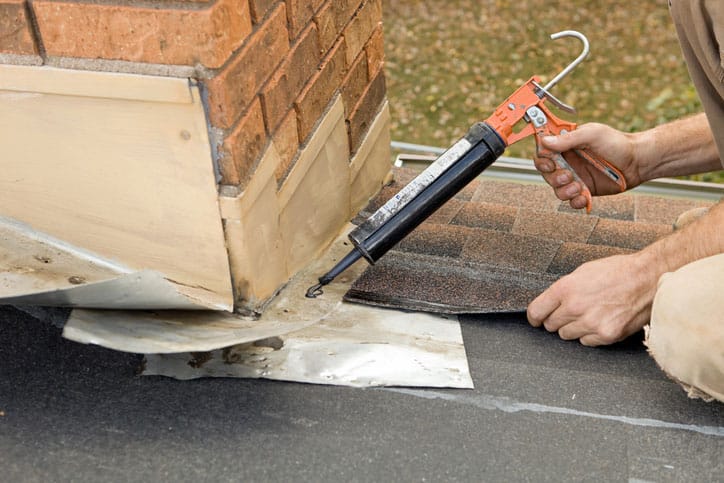When you think about your home, you might picture a cozy fireplace, especially as the weather turns chilly. But what happens when your chimney needs repair?
You might wonder if your homeowners insurance will cover the costs. This question is crucial because unexpected expenses can disrupt your budget. Imagine the relief of knowing you’re covered or the anxiety of facing hefty bills. You’ll uncover the truth about homeowners insurance and chimney repairs.
You’ll learn what is typically covered, what isn’t, and how you can prepare for any surprises. Keep reading to ensure you’re not left out in the cold when it comes to protecting your home and wallet.

Credit: insuranceclaimhq.com
Basics Of Homeowners Insurance
Homeowners insurance typically covers structural damages, but chimney repair depends on the cause. Damages from covered perils like fire might be included. Routine wear and tear often isn’t covered, leaving homeowners to handle maintenance costs themselves. Always check your policy details for specific coverage information.
Understanding the Basics of Homeowners Insurance is crucial for any homeowner. This type of insurance is designed to protect you from unexpected events that could damage your home or personal belongings. Yet, not everything is covered, and it’s essential to know what your policy includes and excludes.Coverage Types
Homeowners insurance generally offers several types of coverage. Dwelling coverage protects the structure of your home, while personal property coverage covers your belongings. There’s also liability protection, which safeguards you if someone gets injured on your property. Do you know if your policy includes additional living expenses? This coverage can help with costs like hotel bills if you need to live elsewhere while your home undergoes repairs. It’s worth double-checking your policy for these different coverage types.Exclusions
Insurance policies have their limits and exclusions. Common exclusions might involve natural disasters like earthquakes or floods, which usually require separate policies. Some policies also exclude wear and tear, which means gradual damage isn’t covered. Does your policy mention exclusions for certain parts of your home, like the chimney? If your chimney damage is due to lack of maintenance, it might not be covered. This is why regular upkeep can be a lifesaver, potentially saving you from hefty out-of-pocket expenses. Navigating your homeowners insurance policy might seem daunting, but it doesn’t have to be. By understanding the basics, you can ensure you’re not caught off guard when you need to file a claim. Have you checked your policy lately to know exactly what’s covered?
Credit: mortarcity.com
Chimney Repair Needs
Homeowners insurance might cover chimney repair if damage results from covered events like storms or fires. Regular wear and tear often isn’t included. Checking your policy details helps understand what’s covered.
Chimneys are a vital yet often overlooked component of your home. They safely channel smoke and harmful gases out of your living space. However, chimneys require regular maintenance and occasional repairs to function properly. Without proper care, they could become safety hazards. So, does homeowners insurance cover chimney repair? Understanding the common issues and signs of damage can guide you in making informed decisions about your chimney care needs.Common Chimney Issues
Chimneys face a range of problems due to exposure to the elements. Cracks in the chimney crown or bricks are frequent due to freeze-thaw cycles. These cracks can let water seep in, causing further damage. Another common issue is creosote buildup, which is a flammable residue from burning wood. If not cleaned regularly, creosote can cause chimney fires. Mortar joint deterioration is also an issue, as it can weaken the structural integrity of your chimney.Signs Of Damage
How can you tell if your chimney needs attention? Look for visible cracks in the bricks or mortar. These are early signs of structural damage. Water stains or dampness around your fireplace can indicate leaks. This could lead to more severe problems if not addressed promptly. Does your fireplace produce a lot of smoke? This might be a sign of a blocked chimney. A simple chimney sweep could resolve this, but it’s crucial to act quickly to prevent more serious issues. Regular inspection can save you from costly repairs. Spotting these signs early can also guide you when considering if your insurance covers the repairs. After all, keeping your home safe is a shared goal between you and your insurance provider. Have you noticed any of these issues in your chimney? Taking action now could save you from future headaches.Insurance Coverage For Chimney Repair
Homeowners often wonder about the coverage of chimney repairs. Insurance policies vary widely. Understanding what is covered can be confusing. This section clarifies what’s typically included and excluded.
Covered Damages
Insurance may cover chimney damage from unexpected events. Fires can be a major cause. Storms and lightning strikes might be covered too. If a tree falls and damages the chimney, it’s often included. These damages are sudden and accidental.
Non-covered Scenarios
Routine maintenance is not covered. Wear and tear from age isn’t included. Gradual deterioration isn’t covered by insurance. Damage from poor construction may be excluded. Neglect and improper repairs are also not covered.
Factors Affecting Coverage
Homeowners insurance coverage for chimney repair depends on various factors. Damage from sudden events like storms might be covered. Regular wear and tear or neglect often aren’t included in the policy. Always review your policy details for specific terms.
When considering whether homeowners insurance will cover chimney repair, several factors come into play. These factors determine the likelihood of your claim being approved or denied. Understanding these can save you from unexpected costs and help you maintain your home more effectively.Age Of Chimney
The age of your chimney plays a significant role in insurance coverage decisions. If your chimney is relatively new, insurance companies might be more inclined to approve a repair claim. Older chimneys might face more scrutiny, as wear and tear over time are often deemed the homeowner’s responsibility. Imagine owning a century-old house with a charming but aging chimney. You might love its vintage appeal, but insurers could see it as a liability. They may argue that repairs are due to age rather than unexpected damage. Does your policy explicitly cover aging structures, or is it time to negotiate an update?Maintenance Records
Keeping detailed maintenance records can be your best ally in securing insurance coverage for chimney repairs. Insurers want to see that you’ve been proactive in maintaining your chimney. Regular inspections and cleaning can demonstrate that you’ve done your part to prevent damage. Consider the last time you hired a professional to inspect your chimney. Did you file away the report? Those records could be the evidence needed to prove that sudden damage wasn’t due to negligence. A neat folder of receipts and inspection reports could be the difference between a denied claim and a check in your hand. Are you prepared to present a well-documented history of your chimney’s upkeep? If not, it might be time to start compiling your records. Understanding these factors can help you better navigate the complexities of homeowners insurance. Are you ready to take action and ensure your chimney is protected?Filing A Claim For Chimney Repair
Homeowners often wonder if insurance covers chimney repair. Coverage depends on the cause of damage. Regular wear and tear may not be included, but sudden events like storms might be. Always check your policy details for specifics.
Filing a claim for chimney repair under your homeowner’s insurance can seem daunting, but it doesn’t have to be. Understanding the steps and necessary documentation can save you time and stress. Let’s break down the process to help you navigate your claim efficiently.Documentation Required
Before you file a claim, gather all the necessary documents. Start with photographs of the damage. Clear images provide concrete evidence of the issue. Next, locate your insurance policy. Review it to understand what is covered. This helps in setting realistic expectations. Additionally, obtain repair estimates from certified contractors. These estimates will support your claim with factual costs.Process Overview
Once your documentation is ready, contact your insurance provider. Make sure to have your policy number handy. This expedites the initial discussion. Your insurer may send an adjuster to assess the damage. Be present during this visit. It’s a great opportunity to point out specific concerns. After the assessment, submit your claim along with the documentation. Keep a copy of everything you send. It’s crucial for tracking your claim. Have you ever faced delays in claim processing? Communicate promptly and follow up regularly. Proactive communication can often speed up the resolution. Filing a claim can be straightforward if you prepare well. Are you ready to tackle your chimney repair claim with confidence?Tips For Homeowners
Understanding homeowners insurance is crucial for chimney repairs. Coverage often depends on the damage cause. Check your policy details. Accidents or sudden events are typically covered, while wear and tear might not be. Always consult your insurer for clarity.
Understanding whether your homeowners insurance covers chimney repair can be a bit tricky. But fear not, we’re here to help. With the right tips and insights, you can navigate this process smoothly. Below are some practical tips to ensure you’re well-prepared.Preventive Maintenance
Regular maintenance is key. By keeping your chimney in good shape, you can avoid larger problems that might not be covered by insurance. Consider scheduling an annual inspection and cleaning. This small step can save you from costly repairs down the road. Neglecting this could mean footing the bill yourself when issues arise. Don’t wait for visible damage to act. Addressing minor cracks or leaks early can prevent significant structural problems. So, take a proactive approach to maintain your chimney’s health.Reviewing Your Policy
Understanding your insurance policy is crucial. Not all policies cover chimney repair, so it’s essential to read the fine print. Look for any exclusions related to chimneys. Some policies may cover damage from specific events like fires or storms but not wear and tear. Contact your insurance agent to clarify any doubts. They can provide insights into what is and isn’t covered. This way, you won’t be caught off guard in case of an unexpected repair. Have you ever faced a surprise expense due to misunderstanding your policy? Share your experiences in the comments below. Your story could help others avoid similar pitfalls. Being informed and proactive can make all the difference in managing your home’s maintenance effectively.
Credit: www.highschimney.com
Frequently Asked Questions
Does Homeowners Insurance Cover Chimney Repairs?
Homeowners insurance may cover chimney repairs if caused by sudden events. Check your policy details for specific coverage.
What Damages Are Typically Covered By Insurance?
Insurance usually covers damage from fire, storms, or accidents. Normal wear and tear is not covered.
Is Chimney Maintenance Important For Insurance Claims?
Yes, regular maintenance is crucial. Insurers might deny claims if lack of upkeep caused the damage.
How Can I File A Chimney Repair Insurance Claim?
Document the damage with photos. Contact your insurer to start the claim process. Provide required information promptly.
Are Chimney Leaks Covered By Insurance?
Coverage for chimney leaks depends on the cause. Sudden leaks from storms might be covered, but wear-related leaks are not.
Conclusion
Understanding your homeowners insurance is crucial. It may or may not cover chimney repairs. Check your policy details. Speak with your insurance agent. Ask questions. Clarify coverage limits and conditions. Regular maintenance of your chimney is important. Prevent potential issues.
It could save you money. Knowledge is your best tool. Protect your home wisely. Knowing what’s covered helps in emergencies. Stay informed and prepared. This ensures peace of mind. Your home remains safe and secure. Always prioritize safety and maintenance.
These steps help in avoiding unexpected costs.





